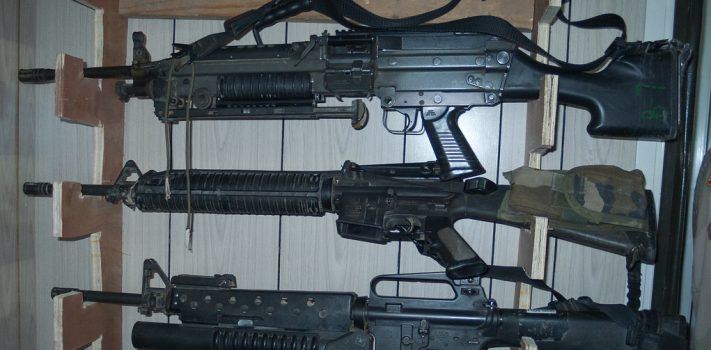by James Wesley Rawles, Survival Blog:

Like most other Americans, I have been closely watching the recent events in Israel. I traveled there once, as a tourist, for several weeks. On that family trip, we drove up to the northern border with Lebanon, and all the way south to Eilat, on the Red Sea’s Gulf of Aqaba. My wife (Avalanche Lily) has studied Hebrew for many years, and she has traveled to Israel more than a dozen times. In all, she has spent more than three years in Israel. So for us, watching the Israel-Hamas War brings back a lot of our travel memories. Lily lived for seven months as a volunteer at two different Kibbutzim in the Hula Valley. She volunteered twice at Kibbutz Dafna and once at Kibbutz Hulata.
TRUTH LIVES on at https://sgtreport.tv/
On one occasion while on Kibbutz Dafna, she had to take shelter from 122mm Katushya rocket attacks on Kiryat Shemonah, with rockets arriving from Lebanon. Kibbutz Dafna is only three miles from Kiryat Shemonah. It was reported that one of the rockets fell out in the fields less than a mile away from the kibbutz. Lily said that every time a rocket exploded the ground shook at the kibbutz. After another stay in Israel that lasted nine months, Lily left Israel and returned to the U.S. on July 2, 2006. That was just ten days before the 2006 Lebanon War rocket barrage. Friends later called and told her a that rocket fell on a restaurant just five hundred yards from the apartment house where she had been living in Tiberias. So for Lily, the recent events have even more vibrant memories attached.
When the modern state of Israel was founded in the aftermath of World War 2 and the Holocaust, guns were ubiquitous. The vast majority of settlers in the fledgling nation were armed and vigilant. But with the leadership of Israel mostly European Ashkenazis rather than Sephardic, they brought with them a European mindset on gun regulations. The Ashkenazis are quite distinct — genetically, culturally, and even religiously from Israel’s Semetic Sephardim. Quite soon, Israel’s government began registering guns, and eventually developed an absurd system, where for all but a veritable handful of licensed collectors, most Israeli citizens are limited to owning just one gun — usually a handgun — under very strict controls and a stringent permit renewal system. There are also strict limitations to how much ammunition can be kept at home. That is just 50 rounds. When we’ve had Israeli friends stay at our home, they had very wide eyes, when I swung open the door of our main gun vault. They were amazed that we were “allowed” to have more than one gun, and so much ammunition.
Only about 20% of Israeli households now have guns. Some modern-day settlers in the West Bank and up in the Golan Heights are issued M16s for their protection, but they represent less than 3% of the nation’s population. The other 97% are absurdly under-armed, except when they are on active military duty. The nation still has nearly universal conscription, and upon leaving the IDF, there are many years of required Reserve service. It boggles my mind how an entire people group could experience systematic gun registration, confiscation, mass roundups, and mass extermination, only to put in place their own bureaucracy that would make it all possible to be completely disarmed again. The word stupid doesn’t quite describe it.
A TALE OF TWO KIBBUTZIM
The recent Hamas incursion and atrocities at kibbutzes have been well-documented. I won’t repeat the details here. Some liberal pundits absurdly questioned the baby-killing atrocity news reports. In answer to them, Benjamin Netanyahu posted actual photos, to Twitter.
An Aside: The term Kibbutz refers to a quasi-communist collective farm, run under strong discipline, usually with communal mess halls and “shared profits.” Most of Israel’s other farmers live on Moshavs — privately-owned farms that are sometimes clustered together, for mutual defense. The Kibbutzim and the Moshavim are quite distinct in the way they go about their business and in their outlook on life.




